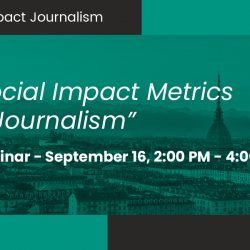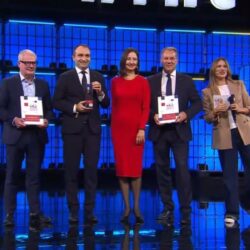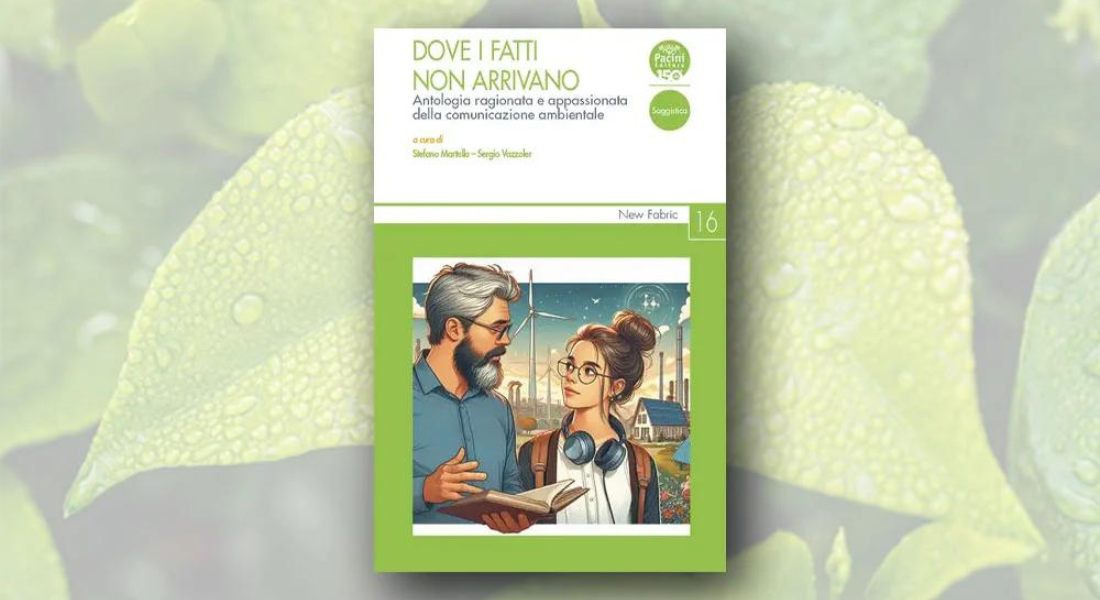There is no sustainable and ecological transition without communication. This is the underlying thesis of the new book “Dove i fatti non arrivano. Antologia ragionata e appassionata della comunicazione ambientale” (Facts are not enough. A Rational and Passionate Anthology on Environmental Communication), published by Pacini and co-edited by Stefano Martello and Sergio Vazzoler. In a moment of profound transition towards a more sustainable paradigm, communication is the tool that can bridge gaps, combat misinformation, and stimulate behavior change.
The book is the concluding chapter of a trilogy that began with the “White Paper on Environmental Communication” (2020) and “The Missing Link. Environmental communication facing the ecological transition” (2022). The new text focuses on the investigation of 50 words – typical of the processes and challenges of an increasingly urgent present – within a hybrid, usable and multidisciplinary narrative framework, in which strategic communication and environmental responsibility mutually contaminate. A true manifesto that photographs the existing and speaks to the future.
Words. Yes, precisely the words
Along with 34 authors, the co-editors of this anthology seek to unravel the paradox surrounding the role of environmental communication today. On the one hand, under scrutiny is the drift of fake news created and fueled by those who intend to oppose or at least slow down the ecological transition. Simultaneously, environmental communication is also associated with the corrosive practice of greenwashing, which, through an inauthentic narrative, benefits in terms of reputation and image by deceiving citizens.
The mainstream solution to combat these distortions is a return to the primacy of facts. A primacy towards which the curators of this book harbor a sense of conscious skepticism, while still acknowledging the value the of scientific evidence and empirical data.
Facts and storytelling
“What prompted us to build this anthology,” explains Sergio Vazzoler, “and therefore, to accompany the primacy of facts with the necessity and urgency of words is a simple observation: there are many, indeed too many, who refer to communication while ignoring or forgetting its original meaning of “sharing” and incorrectly thinking of reality only as a series of facts rather than a collection of facts and their narrative (as Alessandro Baricco said).”
That is why the curators speak of a paradox: by confusing the distorting effects of environmental communication with communication itself, that crucial collective effort to address the epochal challenge of the ecological transition and sustainable development is being moved away. And how to succeed in this endeavor if not patiently sharing data and lived experiences, reasoning and feelings, rationality and emotions? Hence, the curators and authors of the book attempt with this reasoned and passionate anthology.
The identified words
“Along with some more technical words that concern methodologies and equipment, there are also others that are more generic and subtle, apparently generalistic and even off-topic,” says Stefano Martello. “It is not a provocation distilled among the pages, but a precise will. With decidedly surprising results, when ordinary and reassuring words have generated completely unexplored or simply less traveled paths that it will be the task of each individual to select, deepen, test, stress, recognize, or reject.”
Each word is then enriched by one or more insights: in this case as well, the curators have opted for a broad evaluation that includes not only the usual reference bibliography but also literary texts, films, comics, podcasts.
The volume is available on the Pacini Editore website.
Visit the dedicated page.
Dove i fatti non arrivano
Antologia ragionata e appassionata della comunicazione ambientale
Edited by Stefano Martello and Sergio Vazzoler
Contributions by Giulia Armuzzi, Federica Bosello, Micol Burighel, Pietro Citarella, Matteo Colle, Emilio Conti, Elisa De Bonis, Giulia Devani, Marcella Felerico, Daniele Fiani, Nicola Giudice, Giorgia Grandoni, Roberta Iovino, Fabio Iraldo, Irene Ivoi, Stefano Martello, Alberto Marzetta, Gloria Milan, Giuseppe Milano, Biagio Oppi, Luca Palestra, Leonardo Parigi, Riccardo Parigi, Luca Poma, Massimiliano Pontillo, Roberto Scalise, Francesca Schirillo, Rossella Sobrero, Donato Speroni, Marco Talluri, Francesco Testa, Massimo Vaccari, Luca Valpreda, Sergio Vazzoler
Pacini Editore, 2024
New Fabric collection
ISBN 979-12-5486-359-6
Popular
 “Metrics of social impact in… 1 August 2024
“Metrics of social impact in… 1 August 2024  “Foundations and Principles of Solutions… 27 May 2024
“Foundations and Principles of Solutions… 27 May 2024  Turin is the 2024 European Capital of Innovation (iCapital) 14 November 2024
Turin is the 2024 European Capital of Innovation (iCapital) 14 November 2024  Webinar “Fundamentals and principles of… 17 May 2024
Webinar “Fundamentals and principles of… 17 May 2024  Social Procurement, the Responsible Choice for… 24 May 2024
Social Procurement, the Responsible Choice for… 24 May 2024  Webinar “Social Impact Metrics in Journalism” 25 July 2024
Webinar “Social Impact Metrics in Journalism” 25 July 2024 

